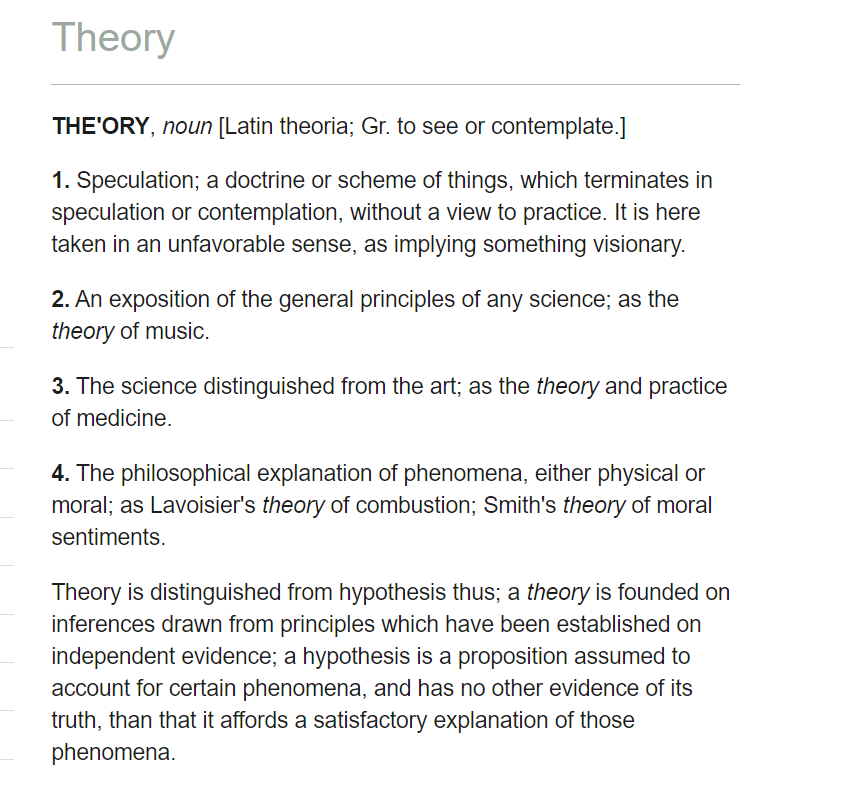Webster's 1828 dictionary provides a definition for "theory."
- Type
- Book
- Source
- Noah Webster Non-LDS
- Hearsay
- DirectSecondary
- Reference
Noah Webster, 1828 Webster's Dictionary, (The Editorium, 1828), "theory," accessed February 21, 2022
- Scribe/Publisher
- Noah Webster, The Editorium
- People
- Noah Webster
- Audience
- Reading Public
- Transcription
THE'ORY, noun [Latin theoria; Gr. to see or contemplate.]
1. Speculation; a doctrine or scheme of things, which terminates in speculation or contemplation, without a view to practice. It is here taken in an unfavorable sense, as implying something visionary.
2. An exposition of the general principles of any science; as the theory of music.
3. The science distinguished from the art; as the theory and practice of medicine.
4. The philosophical explanation of phenomena, either physical or moral; as Lavoisier's theory of combustion; Smith's theory of moral sentiments.
Theory is distinguished from hypothesis thus; a theory is founded on inferences drawn from principles which have been established on independent evidence; a hypothesis is a proposition assumed to account for certain phenomena, and has no other evidence of its truth, than that it affords a satisfactory explanation of those phenomena.
- Citations in Mormonr Qnas
The B. H. Roberts Foundation is not owned by, operated by, or affiliated with the Church of Jesus Christ of Latter-day Saints.

